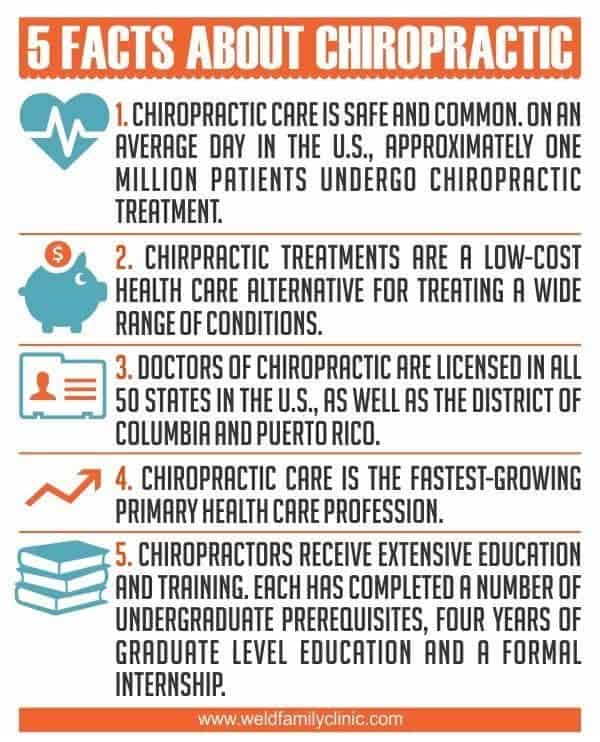Care For Your Back By Finding The Impact Of Your Diet On Pain Monitoring-- Learn Which Foods Can Provide Relief And Which Ones To Stay Away From
Care For Your Back By Finding The Impact Of Your Diet On Pain Monitoring-- Learn Which Foods Can Provide Relief And Which Ones To Stay Away From
Blog Article
Team Writer-Bond Guldborg
When it concerns managing your back pain, the food selections you make can considerably affect how you feel each day. Imagine being able to relieve your pain simply by changing what you eat. By understanding the role of nutrition in back pain administration and recognizing which foods to incorporate or steer clear of, you can take aggressive steps in the direction of a healthier and extra comfy lifestyle. The link in between nourishment and back wellness is a lot more profound than you may understand-- let's discover exactly how specific foods can either calm or exacerbate your pain in the back.
Relevance of Nutrition in Back Pain
Nourishment plays an essential duty in managing pain in the back. https://adjustment-chiropractic30728.blogsuperapp.com/32631551/you-might-be-stunned-to-find-out-that-several-misconceptions-about-chiropractic-treatment-originate-from-a-lack-of-understanding-find-the-fact-behind-these-misconceptions can considerably impact swelling levels and general pain levels in your back. Taking in a balanced diet regimen rich in nutrients like vitamins D and K, calcium, magnesium, and omega-3 fats can help in reducing swelling and reinforce bones, which are vital for back health and wellness.
Additionally, keeping a healthy and balanced weight through correct nutrition can reduce tension on your back, reducing the risk of pain in the back.
Furthermore, what to do for lower back pain like anti-oxidants found in fruits and vegetables can aid fight oxidative stress and promote healing in the body, including the back muscle mass and spinal column.
On the other hand, eating extreme quantities of refined foods, sugary beverages, and unhealthy fats can add to inflammation and weight gain, exacerbating neck and back pain.
Foods to Consume for Back Health
To sustain a healthy and balanced back, including nutrient-rich foods into your everyday dishes is vital. Including foods high in antioxidants like berries, spinach, and kale can help reduce inflammation in your back, reducing pain and discomfort. Omega-3 fats discovered in fatty fish such as salmon and mackerel have anti-inflammatory properties that can benefit your back health and wellness.
In addition, eating nuts and seeds like almonds, walnuts, and chia seeds supplies important nutrients like magnesium and vitamin E, which support muscle feature and decrease oxidative tension. Including lean proteins such as chicken, turkey, and tofu can aid in muscle repair service and maintenance, advertising a solid back.
Do not neglect to include linked here or strengthened plant-based alternatives for calcium to sustain bone health and wellness. Finally, hydrate with lots of water to keep your back discs hydrated and functioning efficiently. By including these nutrient-dense foods in your diet, you can nourish your back and support overall back health.
Foods to Prevent for Pain In The Back
Opt for staying clear of refined foods high in sugarcoated and trans fats when looking for remedy for back pain. These types of foods can add to inflammation in the body, which might intensify back pain. Say no to sweet treats like candy, breads, and sugary drinks, in addition to fast food items like burgers, french fries, and fried poultry that are often loaded with trans fats.
Furthermore, steer clear of foods containing high degrees of refined carbohydrates, such as white bread, pasta, and pastries, as they can surge blood sugar levels and potentially get worse swelling in the body.
It's additionally important to limit your consumption of foods high in saturated fats, like red meat and full-fat milk products, as they can contribute to swelling. Processed foods like delicatessens meats, chips, and packaged snacks are often high in hydrogenated fats and need to be consumed in moderation.
best back pain relief
To conclude, focusing on your diet plan and making wise food options can have a considerable influence on managing pain in the back. By integrating nutrient-rich foods like berries, fatty fish, nuts, and lean proteins, and staying clear of refined and sugary products, you can help reduce inflammation and support generally back health and wellness. Keep in mind, what you consume plays an essential duty in exactly how you feel, so see to it to prioritize your nutrition for a much healthier back.
